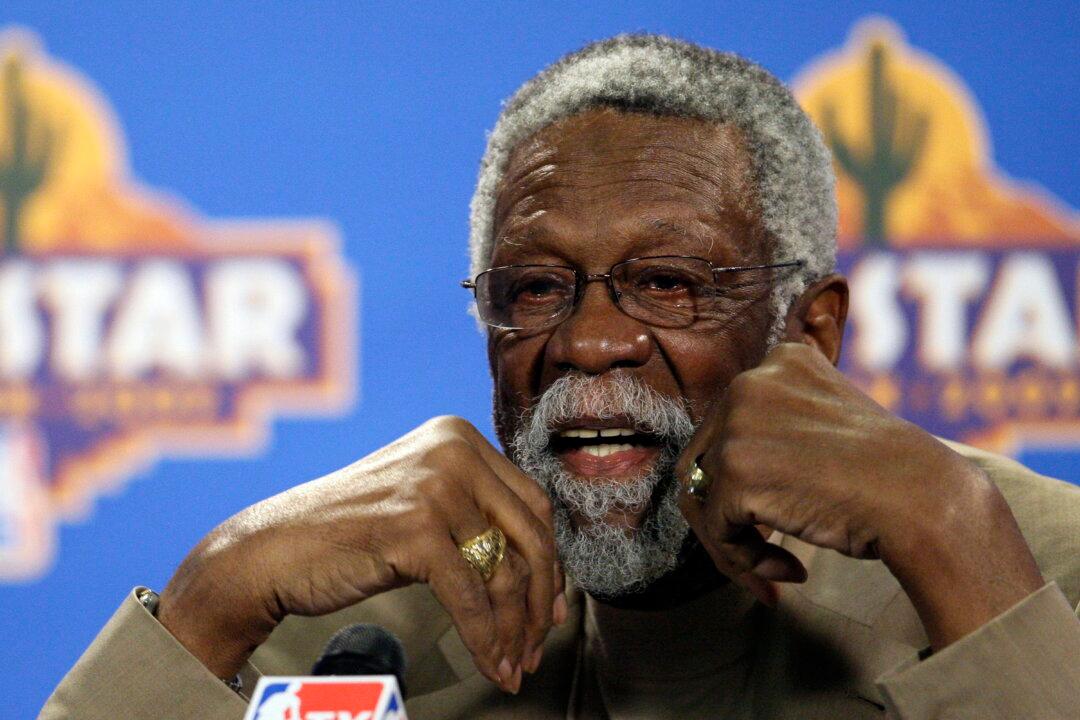
Former NBA great Bill Russell speaks during a news conference at the NBA All-Star basketball weekend in Phoenix on Feb. 14, 2009. Matt Slocum/AP Photo
BOSTON—Bill Russell, the NBA great who anchored a Boston Celtics dynasty that won 11 championships in 13 years, died Sunday. He was 88.
His family posted the news on social media, saying Russell died with his wife, Jeannine, by his side. The statement did not give the cause of death.





